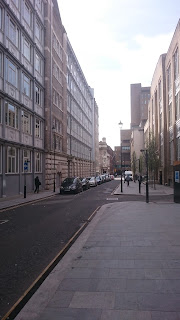No charges were brought against man who accidentally shot a ten year old boy in the 1840s while he was hunting small birds.
On Monday 30th November 1846 a man walking on the footway from Aigburth to Garston came across the body of a boy around ten years of age. He sent for a local surgeon Dr Bevan, who established that death was as a result of a gunshot wound to the neck.
The boy was identified as John Colclough, who lived with his widowed mother and two sisters in Garston. Suspicion immediately fell on a local publican called Mr Gerard, who had been seen shooting larks in the area that afternoon.
A police constable named Benjamin Mytton called upon Gerard the following morning but he denied all knowledge of the incident. However that evening he presented himself to Mytton along with a young man named Leefe who had been shooting with him. Gerard admitted that Leefe was holding the gun as Gerard loaded it and it went off, with the boy falling dead instantly. Both men foolishly decided to take flight but now felt it was best to tell the full facts of the matter.
Mytton took Leefe to the Chairman of the Watch Committee, Mr Tinne, who ordered that he be kept in custody until the following morning but to be treated kindly. At the inquest which was held at the Red Lion hotel in Garston, a verdict of 'Chance Medley' was returned and the coroner John Heyes condemned the practice of shooting small birds near to populous neighbourhoods.
Leefe was free to go but there was a dispute over the cost of keeping him in custody. Gerard complained to the superintendent, Mr Allen that Mytton wanted 21 shillings for keeping Leefe at his home instead of putting him in the village lock up. Allen said another constable was happy to put him up free of charge, but Mytton claimed he was drunk when he took Leefe there. Allen dismissed such a suggestion and ordered that Gerard only needed to pay five shillings to Mytton.
Gerard and Leefe then visited John's mother and offered her seventeen shillings to pay for burial expenses. She refused this as she did not want others to think she was accepting compensation for the loss of her son. She asked the Liverpool Mercury newspaper to clarify this, saying her husband was a gardener who had died about a year earlier and since then she had worked as a labourer in the fields and as a charwoman to make ends meet. The paper described her of respectable appearance and said that she was 'worthy of employment'.



